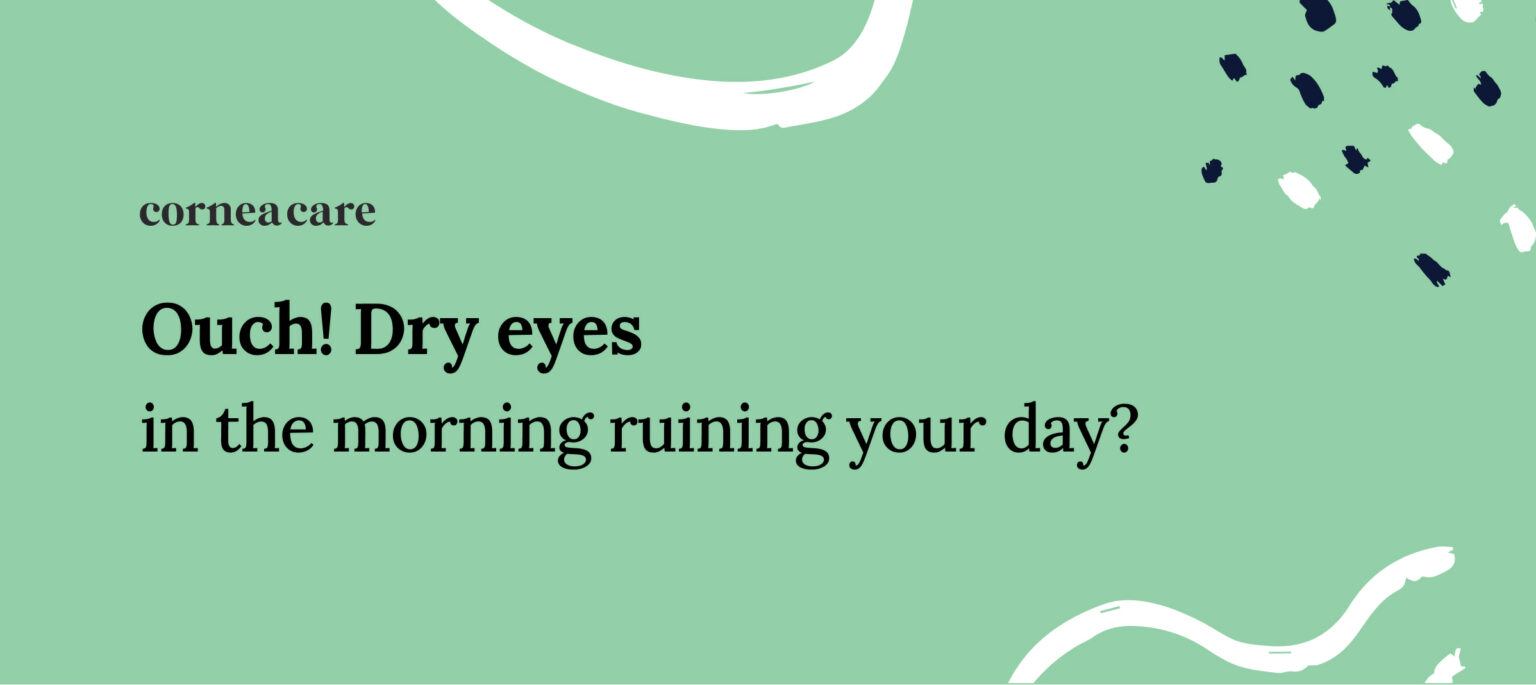If you are constantly waking up with dry eyes in the morning, you may be experiencing a common symptom of dry eye disease. Dry eye disease is a chronic condition that affects millions worldwide. Symptoms of dry eye disease can be debilitating and cause issues far beyond just your eyes. More importantly, dry eye disease affects your mental, social, and physical well-being.
Key points
- Experiencing dry eyes in the morning is a common symptom of dry eye disease.
- Several lifestyle factors and medical conditions can cause your eyes to be dry in the morning.
- Get relief from waking up with dry eyes by adhering to a good dry eye treatment plan that includes eyelid hygiene, tear replacement, reducing inflammation and lifestyle and environmental modifications.
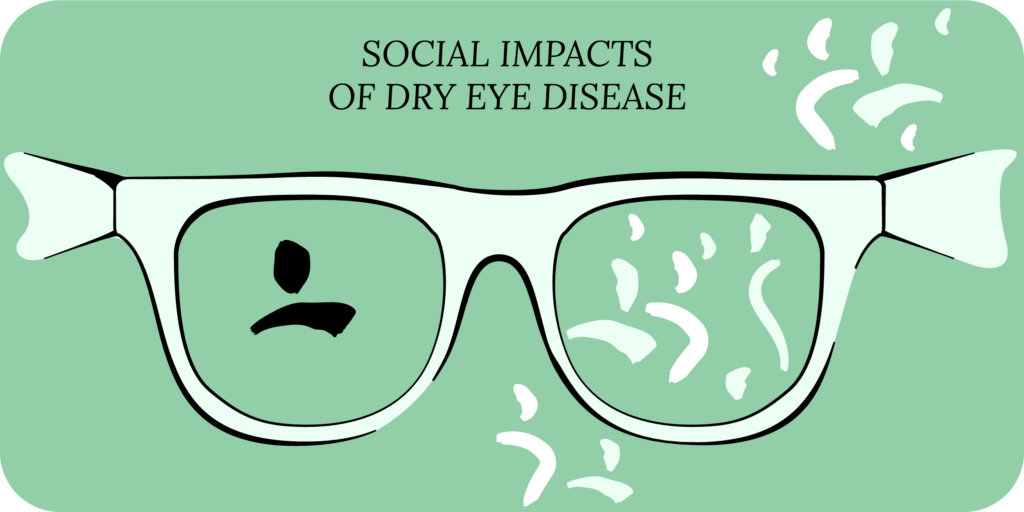
If you wake up with dry eyes in the morning, you may not be getting adequate high-quality sleep needed for rest and repair. We all know how it feels to be well-rested versus sleep-deprived. Poor quality of sleep is linked with many physical and psychological medical conditions, including obesity, mood disorders, high blood pressure and reduced performance at work.¹
We’re here to tell you that even though DED affects most people for life, there are ways to manage DED symptoms so that you wake up and feel excited about the day ahead!
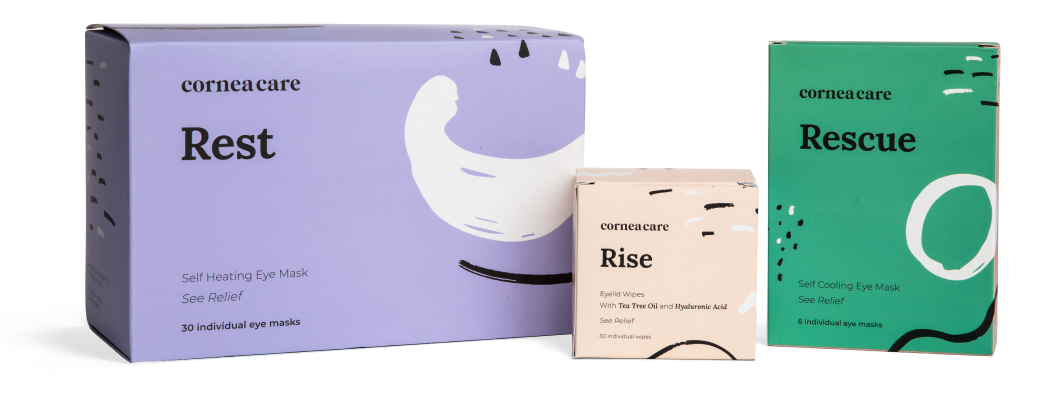
All Rounder
Eyelid Hygiene Plan 3
Perfect for eye dryness, burning, itching, grittiness, crusting/flaking of eyelashes and inflamed/swollen eyelids. Free shipping 📦.
Try today - $60
A Quick Overview of Dry Eye Disease
Dry eye disease (DED) is an eye condition also known as keratoconjunctivitis sicca, dry eye syndrome and ocular surface disease, and it is much more common than you may think! Dry eyes affect 30 million people in the United States and 300 million people worldwide.²
So what exactly is DED? You can think about it as a malfunction in your tear film. Your tear film coats your cornea, or the front part of your eye. Your tear film plays a crucial role in protecting the eyes, making them feel comfortable, and helping you see clearly. If your tear film isn’t working well (due to various reasons), it sets off a cascade of inflammation, leading to the classic dry eye symptoms.³
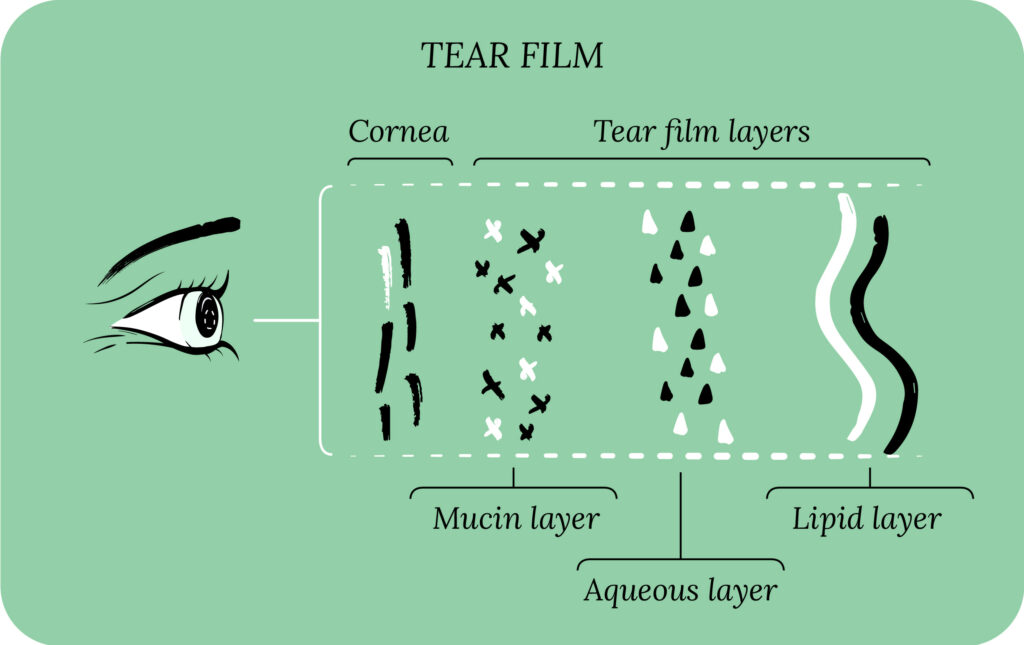
We explore DED in much greater detail in What is Dry Eye Disease and in our Dry Eye 101 Course. If you have questions or want to share your experience with dry eyes, visit our community page!
Symptoms of Dry Eyes
Some of the most common symptoms of dry eyes in the morning match the classic symptoms of DED. These symptoms include:³
- Redness
- Gritty feeling
- Burning sensation
- Itchy eyes
- Light sensitivity
- Blurred vision
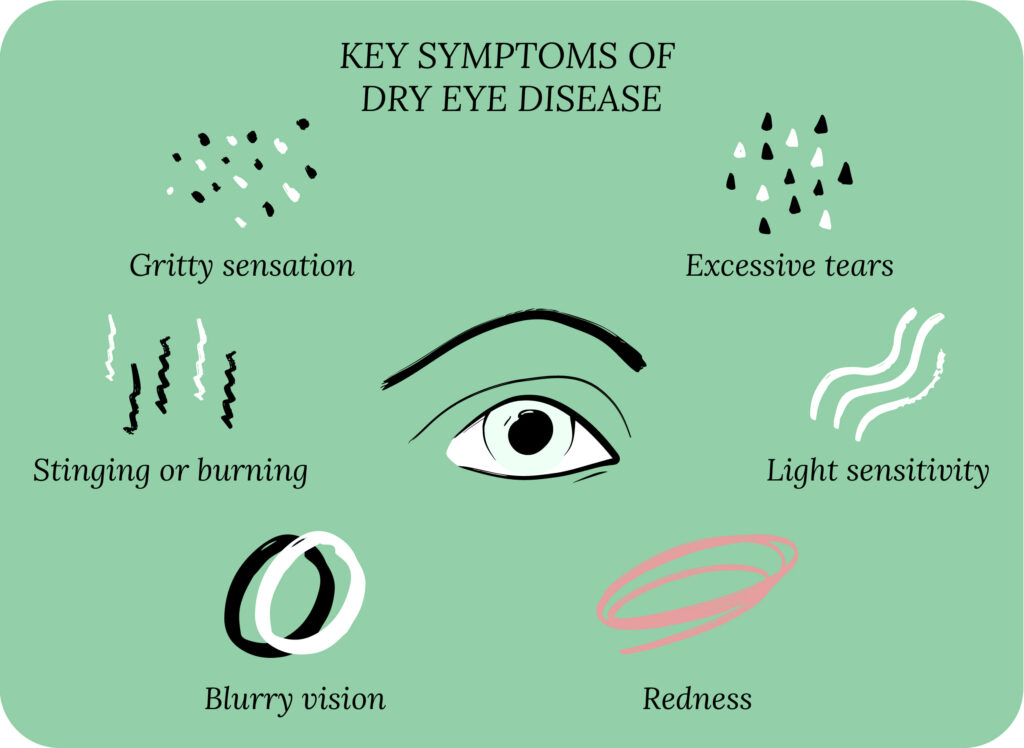
What Causes Dry Eyes in the Morning
Like with DED, there are many factors that can contribute to symptoms of morning dry eyes and everyone’s situation is unique. While DED sufferers may experience symptoms all day long, some may have more intense symptoms in the morning compared to the rest of the day, or only have symptoms in the morning. Below are some of the most common causes of dry eyes in the morning.
Nocturnal lagophthalmos
Don’t worry; we won’t ask you to pronounce this condition! Nocturnal lagophthalmos simply means that your eyelids remain partially open while you are sleeping. As you can imagine, this causes some instability to your tear film and may cause your eyes to dry out overnight. Nocturnal lagophthalmos may disrupt your sleep, even if it doesn’t fully wake you up.⁴
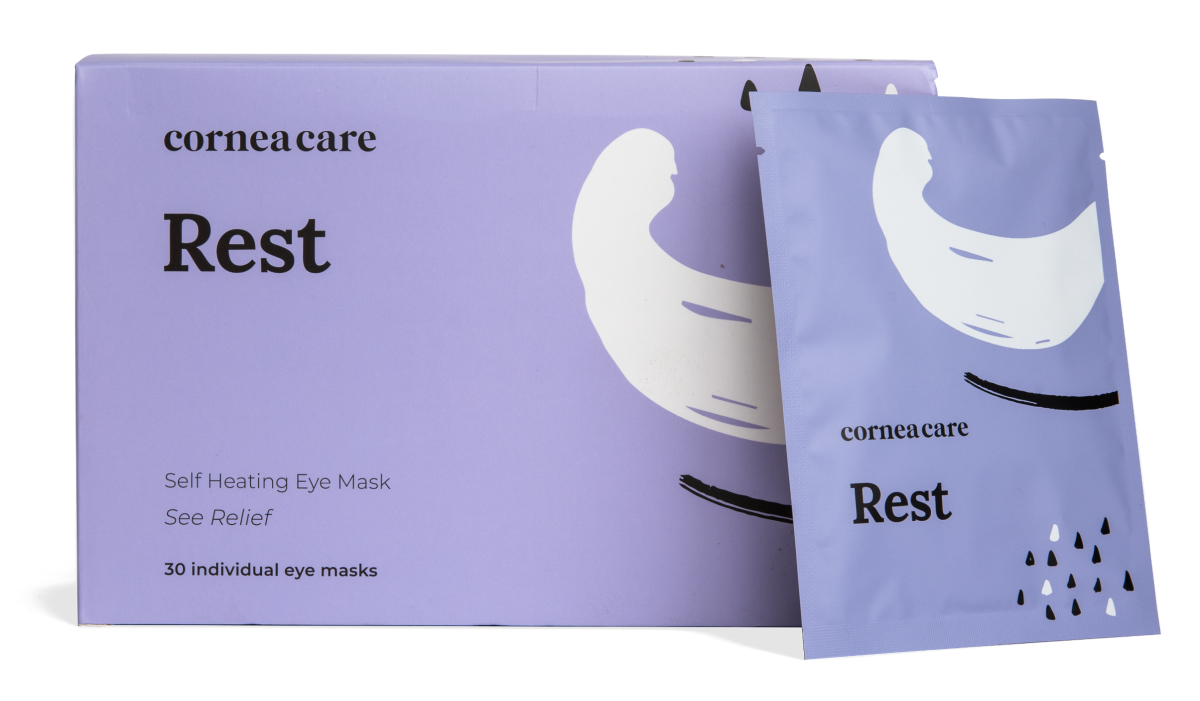
Rest
Warm Compresses
Perfect for eye dryness, fatigue, tearing, and puffiness of the eyelids. Free shipping 📦.
Try today - $30
Environmental Factors
Your sleeping environment can cause dry eyes in the morning. Allergens, such as dust mites, dirt, and even dead skin cells, can all irritate the eyes while you sleep and cause them to become dry. Keeping your sleeping area tidy and wiped clean is a simple solution to remove bedroom allergens.
Other environmental factors for DED include:⁶
- Low humidity in the room
- Sleeping in front of a fan or air conditioner, or under an air vent
- Using digital screens before bed
- Cigarette smoke
- Aerosol sprays and synthetic fragrances
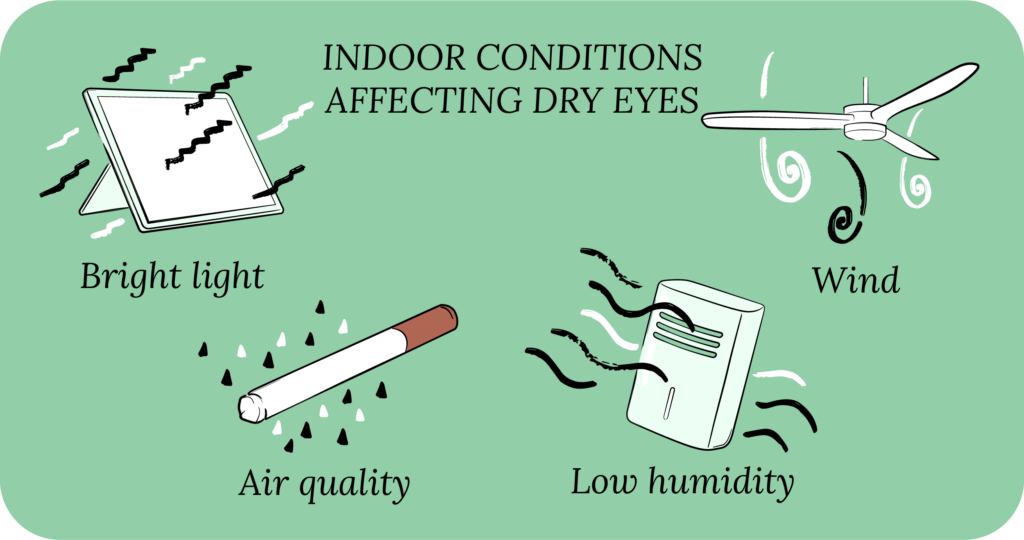
Medications and medical conditions
The tricky part about DED is that there are many factors that contribute to you experiencing symptoms. Several medical conditions such as Sjörgens syndrome, meibomian gland dysfunction, rheumatoid arthritis, blepharitis, and even hormonal changes such as pregnancy and menopause can cause DED. Even seemingly harmless over-the-counter (OTC) medications such as antihistamines and decongestants can lead to dry eyes, especially with prolonged use. Certain prescription medications such as antidepressants and contact lenses can also dry out the eyes.⁵ We do not suggest stopping any of these medications, but it’s best to talk to your eye care provider to discuss potential side effects and treatments available.
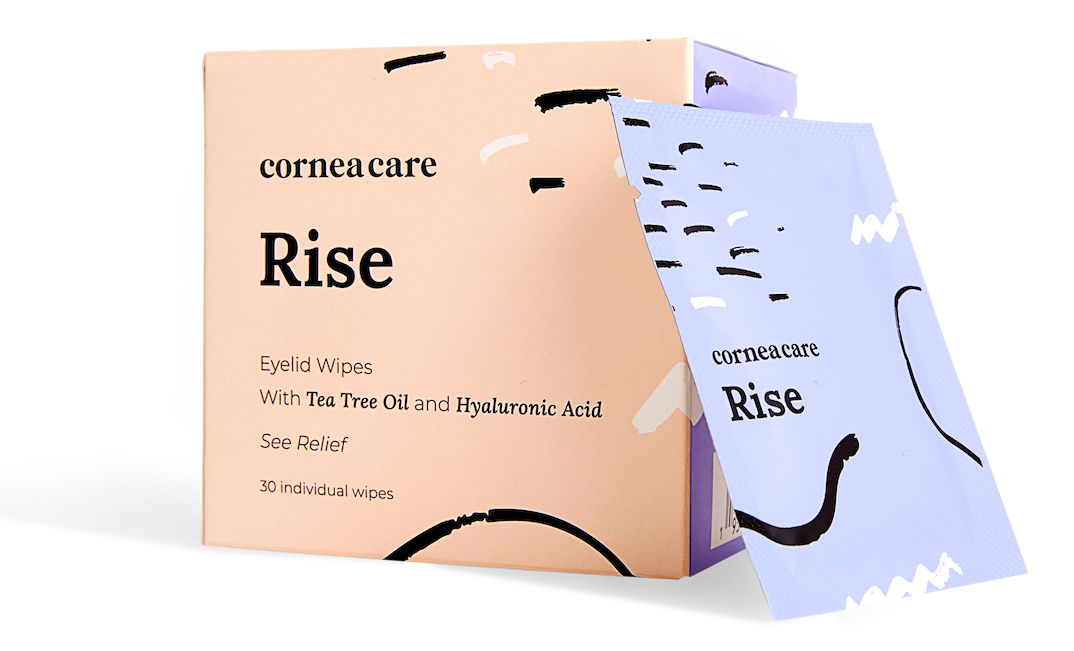
Rise
Eyelid Wipes
Perfect for eye dryness, itching, burning, and crusting/flaking of eyelashes. Free shipping 📦
Try today - $25
How Do You Treat Dry Eyes in the Morning
The good news about treating dry eyes in the morning is that simple lifestyle changes can be tried first before starting treatment options such as OTC or prescription medications or medical procedures. Unfortunately, with DED, you may require more intense medical intervention, but with the right treatment plan and a good self-care and eye care routine, you can manage DED and still live a great life.
The basics of dry eye treatment include eyelid hygiene, tear replacement, reducing inflammation and lifestyle and environmental modifications.
Eyelid hygiene
The eyes and eyelids work together to maintain your tear film and protect your eyes. Eyelid hygiene includes daily care of your eyelids with warm compresses and scrubbing your eyelids with eyelid wipes or sprays. You can purchase pre-made warm compresses or make your own with a warm towel and water. For eyelid scrubbing, you can use gentle baby shampoo and a soft towel, or buy pre-moistened eyelid cleansing wipes.
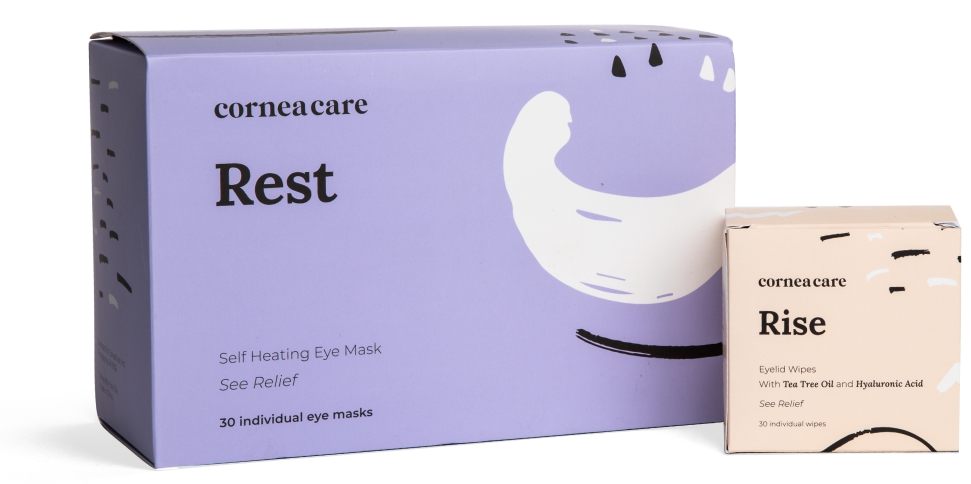
Foundation
Eyelid Hygiene Plan 2
Perfect for eye dryness, burning, itching, crusting/flaking of eyelashes and inflamed eyelids. Free shipping 📦.
Try today - $45
Tear replacement
While eyelid hygiene stabilizes tear film, tear replacement replenishes tear film. Tear replacement can be accomplished with artificial tears or eye drops, gels or ointments available in OTC and as prescriptions. It’s important to keep in mind that the best tear replacement treatment is the one that you adhere to consistently and that works for you. It often takes several weeks of consistent artificial tear use before seeing noticeable results. It may be best to start with a tear gel or ointment for dry eyes in the morning and use right before bedtime to provide overnight lubrication.⁷
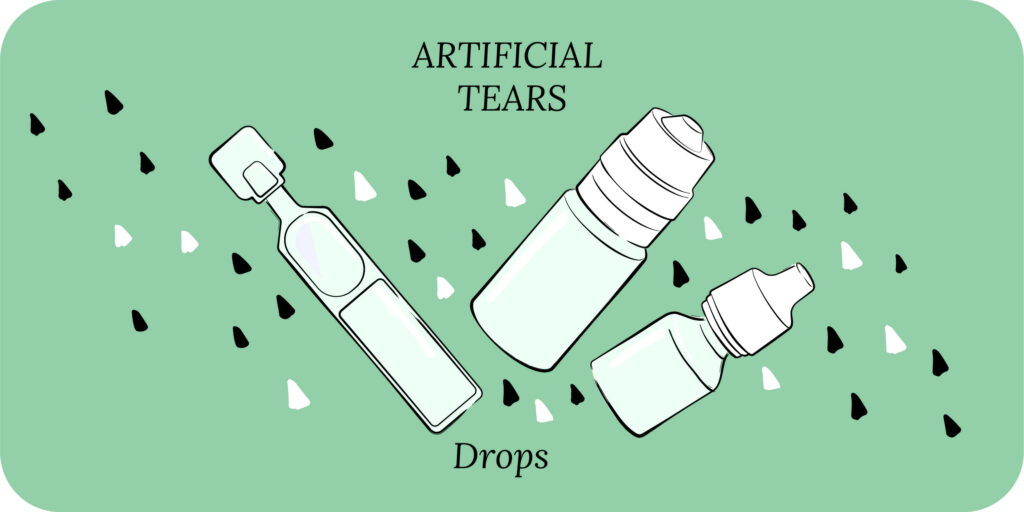
Reducing inflammation
Inflammation seems to be a hot topic these days, and for a good reason. When your body is inflamed, it is hard to maintain overall health. Inflammation in your tear glands, cornea, or conjunctiva (outer layers of your eyes) can lead to your body not making enough tears, or the right types of tears.⁶ Reducing eyelid inflammation with cold compress, supplements like omega-3 fatty acids and good nutrition can significantly impact dry eye symptoms.
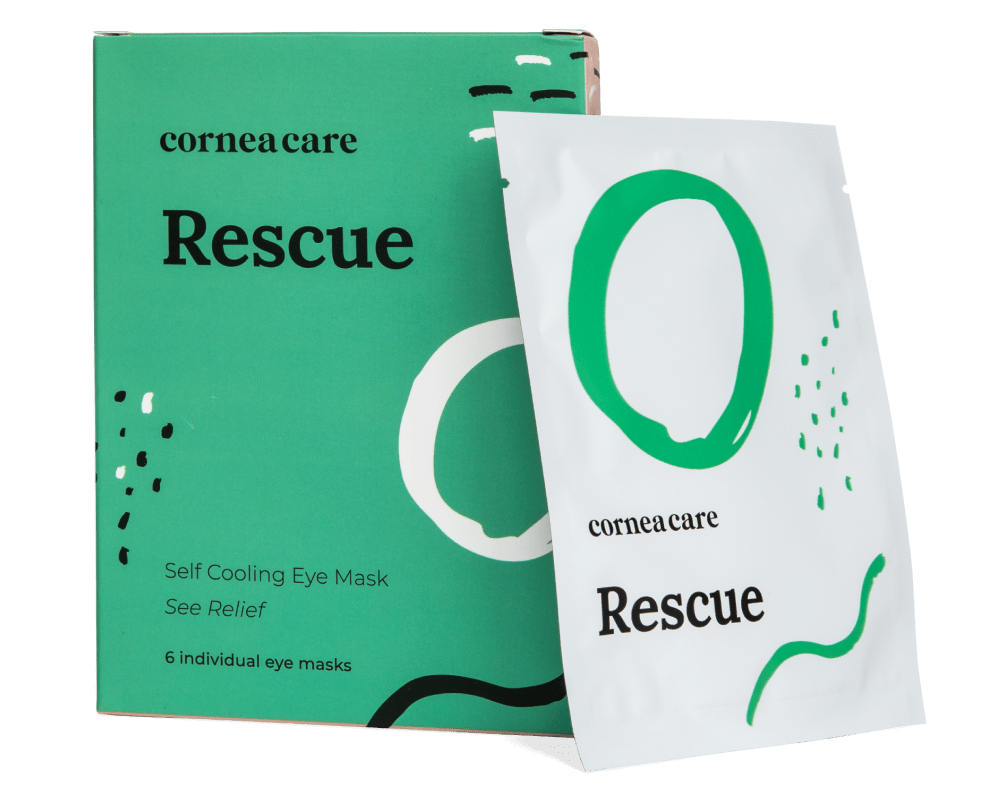
Rescue
Cold Compresses
Perfect for sudden flare-ups of eye dryness, pain, burning, and swollen/inflamed eyelids. Free shipping 📦.
Try today - $12
Lifestyle and environmental changes
Lifestyle and environmental modifications can make a huge difference in reducing DED and morning dry eye symptoms.
- Using a humidifier (cool mist is preferred over warm)
- Moving your bed away from direct air and heat sources
- Avoiding digital screens like computers or smartphones before bed
- Stopping or avoiding cigarette smoke before bed and in the home
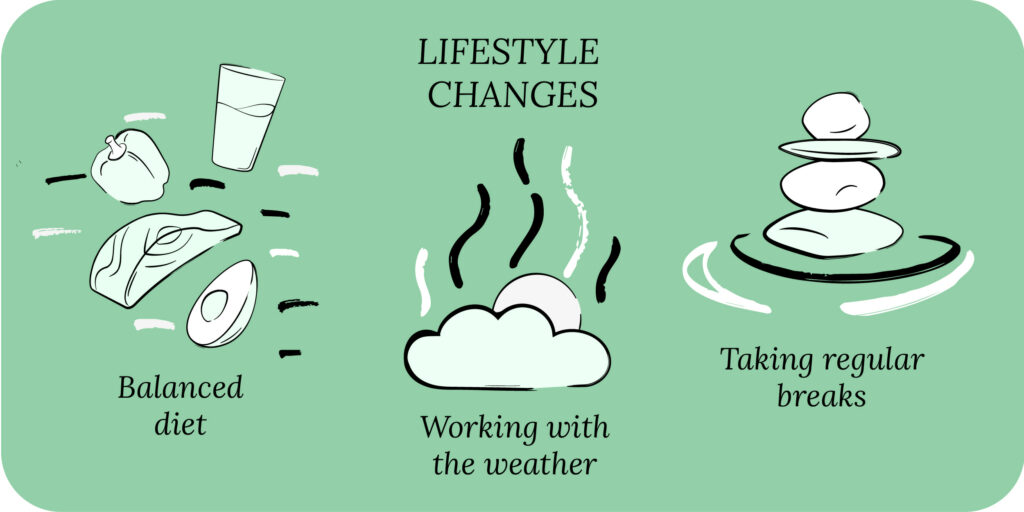
In severe cases, talk to your eye doctor (ophthalmologist or optometrist) about a treatment plan that includes eyelid hygiene, ocular lubrication, prescription eye drops, medications, or procedures along with simple lifestyle changes to help alleviate symptoms.
Putting It All Together
Waking up with dry eyes in the morning can be frustrating. The morning should be a time of hope and excitement about the day ahead. If you are waking up with dry, painful eyes it may be hard to get in a positive mood for the day.
At CorneaCare, we care about your whole health, which we believe begins with good eye health. After all, we use our eyes from the moment we wake up until we go to sleep at night. It’s important you focus on both preventing and treating dry eyes with good lifestyle habits that impact not just your eyes, but your overall health and wellbeing.
What’s Next
Our popular Dry Eye 101 course is a great way to start a solid eye treatment plan. If you’ve already taken it, way to go! We’d love to hear from you in our Dry Eye Community.


